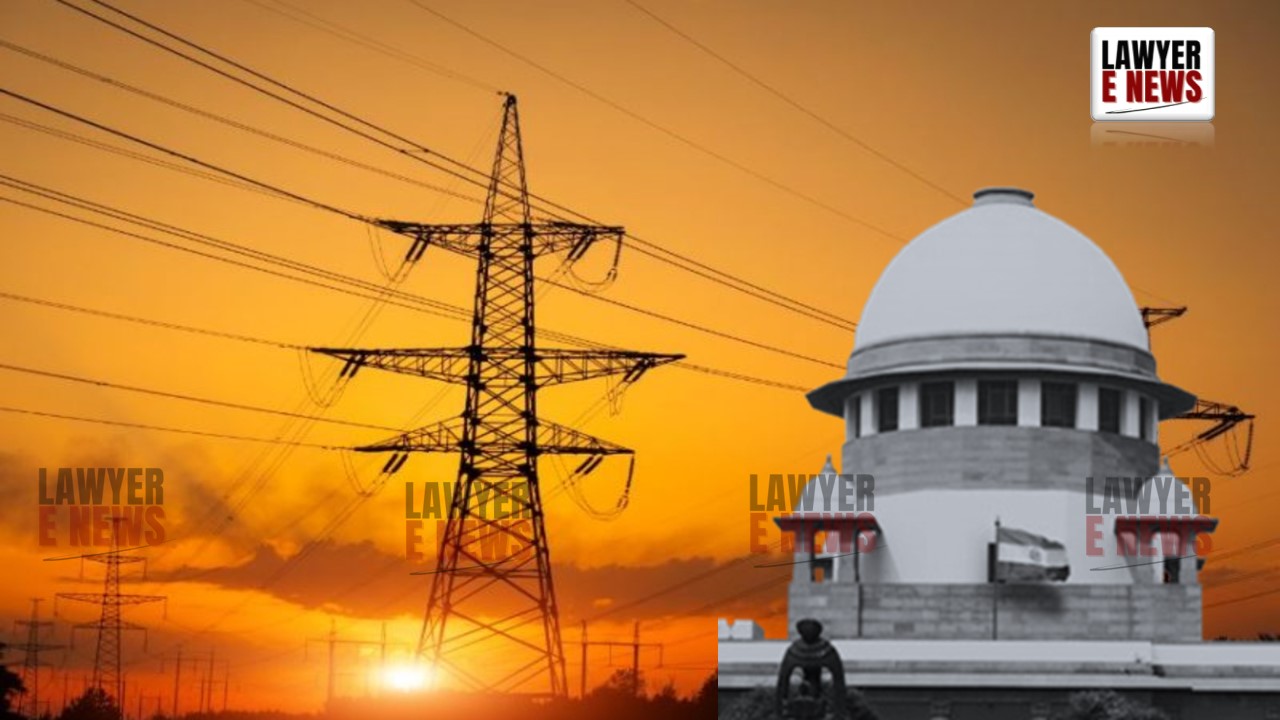-
by Admin
15 February 2026 5:35 AM



In a significant judgement, Supreme Court held Section 56(2) of the Electricity Act, 2003, does not apply retrospectively to liabilities incurred under prior laws, and any demand raised after considerable delay does not extinguish the obligation, provided no legal bar exists. Supreme Court of India ruled in favor of Madhya Pradesh's electricity distribution utility, permitting recovery of substantial arrears for unutilized electricity minimum guarantee charges against Bapuna Alcobrew Pvt. Ltd. The case examined whether the limitation period under Section 56(2) of the Electricity Act, 2003, would prevent a delayed claim for dues that originated under earlier statutes, specifically the Indian Electricity Act, 1910. The Supreme Court reversed the High Court’s earlier ruling, affirming the utility's right to demand payment despite a lapse of several years.
The dispute began in 1991 with an agreement between Madhya Pradesh Madhya Kshetra Vidyut Vitran Co. Ltd. (MPMKVVCL) and Bapuna Alcobrew Pvt. Ltd. for power supply to the latter’s manufacturing unit. The agreement set a minimum consumption charge, which would guarantee a certain revenue to the electricity supplier. Following several adjustments to the agreement, Bapuna Alcobrew sought permission to operate an 807 kVA biogas generator as a standby. Permission was granted on the condition that the generator would be used only during power outages and not run in parallel with the regular supply. When the company allegedly ran the generator in violation of this condition, MPMKVVCL issued notices demanding minimum guarantee charges for the period of 1996–2000.
This led to prolonged litigation, with Bapuna Alcobrew challenging the demands. The High Court of Madhya Pradesh initially provided some relief but ultimately, through various orders, upheld the electricity board's right to demand minimum charges. Despite the interim orders in favor of MPMKVVCL, the enforcement and demand process continued to stall, culminating in a second show-cause notice issued in 2009, which became the focal point of the legal dispute over limitation.
The primary issue before the Supreme Court was whether the two-year limitation period under Section 56(2) of the Electricity Act, 2003, barred MPMKVVCL from demanding unpaid dues for a period predating the Act’s enforcement. Section 56(2) prevents recovery of electricity dues beyond two years unless they are shown as arrears continuously. However, the Court clarified that this provision does not apply retroactively to liabilities incurred under prior legislation.
Referring to previous decisions in Kusumam Hotels (P) Ltd. v. Kerala SEB and K.C. Ninan v. Kerala SEB, the Court affirmed that liabilities accrued under the Indian Electricity Act, 1910, or the Electricity (Supply) Act, 1948, survive the enactment of the 2003 Act. The Supreme Court emphasized, “liabilities which arose prior to the 2003 Act are unaffected by the limitation prescribed in Section 56(2) of the new Act.”
The Court underscored that previous orders from 2000 and 2001 in the High Court had established Bapuna Alcobrew’s liability for minimum guarantee charges, even in the absence of actual electricity consumption. These orders had not been appealed, and therefore, were final. The Court invoked the doctrine of issue estoppel, explaining that “a matter once conclusively decided cannot be re-litigated,” barring Bapuna Alcobrew from challenging its payment obligations established by prior orders.
The Court examined whether the delay of nine years in issuing the second demand notice affected MPMKVVCL’s right to recover dues. It noted that while such delays are generally discouraged, they do not, in this case, invalidate the demand, especially since the liability had been judicially acknowledged in interim orders that the respondent did not contest.
Justice Datta remarked that Section 24 of the Indian Electricity Act, 1910, did not prescribe a limitation period for initiating a demand notice for unpaid electricity charges. The Court recognized that although MPMKVVCL had the option to pursue recovery through court proceedings, the demand notice issued in 2009 remained valid and enforceable, as “mere delay without a legal bar does not extinguish the debt.”
The Supreme Court concluded that MPMKVVCL’s demand was legally sound and unaffected by the limitation period under the 2003 Act. The Court set aside the High Court's judgment, reinstating MPMKVVCL’s right to recover the sum due. This decision reaffirms that utility providers may enforce payment obligations from past agreements if they have been judicially recognized, even if substantial time has elapsed without recovery actions.
Date of Decision: November 4, 2024
The Madhya Pradesh Madhya Kshetra Vidyut Vitran Co. Ltd. & Ors. v. Bapuna Alcobrew Pvt. Ltd. & Anr.
